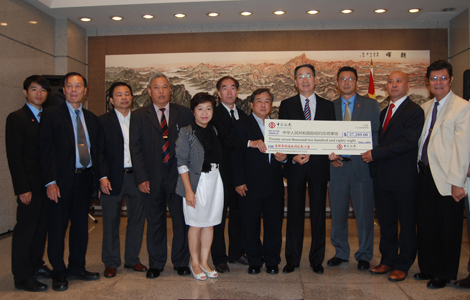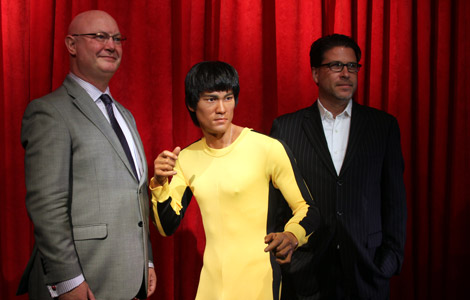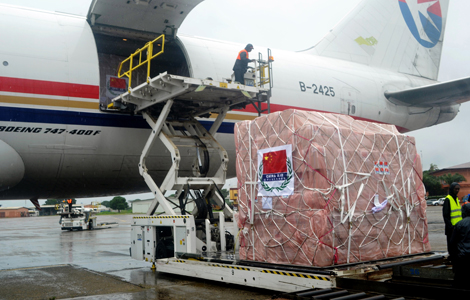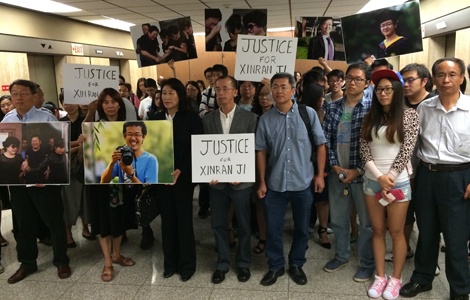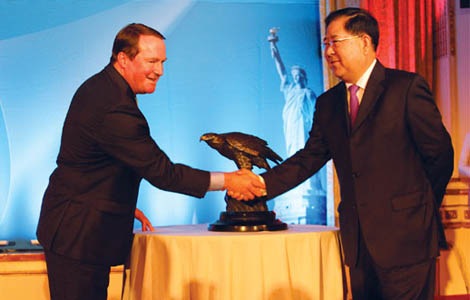Japanese ministers visit Yasukuni Shrine
Updated: 2014-08-15 08:12
(Xinhua)
|
||||||||
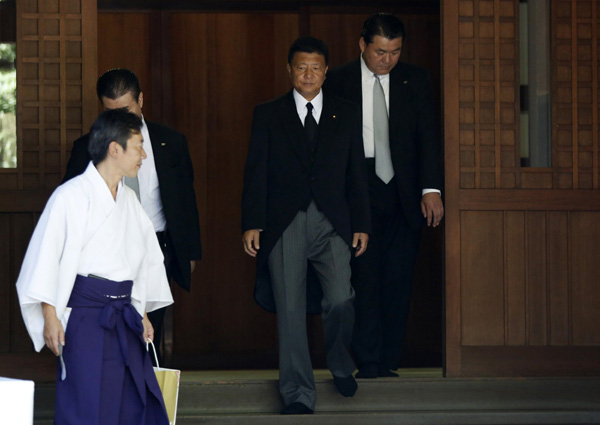 |
|
Japan's Internal Affairs and Communications Minister Yoshitaka Shindo leaves after visiting the Yasukuni Shrine in Tokyo August 15, 2014. [Photo/Agencies] |
TOKYO - Japanese Internal Affairs Minister Yoshitaka Shindo visited the controversial war-linked Yasukuni Shrine on Friday on the 69th anniversary of Japan's surrender in the World War II.
Shindo's visit to the notorious shrine follows Chairman of the National Public Safety Commission Keiji Furuya's worship minutes later and Shindo said his visit was a private behavior.
For his part, Furuya said after his visit that it is reasonable for him, as a Japanese, to pay worship to the shrine that he called as a place not to whitewash Japan's wartime history.
|
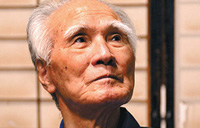 Ex-Japanese PM opposes change to pacifist course
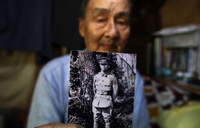 Aged Japan veterans voice concerns about military policy shift |
Furuya visited the shrine during its spring and autumn festivals since he became state minister of the Prime Minister Shinzo Abe's Cabinet launched in 2012. He also paid his respect to the Yasukuni on Aug. 15 last year.
Japanese Prime Minister Shinzo Abe, who reportedly will not to visit this time, planned to send sacrifice to the shrine and his visit last year in December triggered strong criticism worldwide.
Meanwhile, Shinjiro Koizumi, lower house lawmaker from the ruling Liberal Democratic Party and son of former Prime Minister Junichiro Koizumi, also paid a visit to the controversial shrine Friday.
Repeated worships to the shrine angers Japan's neighboring countries that suffered Japan's brutal aggression in wartime as 14 convicted Class-A Japanese war criminals during the WWII are enshrined here.
Japan's relations with its neighboring countries, especially South Korea and China, have frayed not only for territorial disputes, but also due to the Yasukuni and "comfort women" issues, which are considered as a test stone to Japan's reflection on its wartime history.
Both of the two Japan's neighbors urged many times that Japan and its officials should face up to its past history and act concretely to mend ties with its neighboring countries.
- Abe should not visit Yasukuni Shrine
- Ex-Japanese PM: Abe should not visit Yasukuni Shrine
- Japanese state minister visits Yasukuni shrine
- Bieber says sorry for Yasukuni Shrine visit
- Yasukuni Shrine visits face strong criticism in Japan
- Yasukuni Shrine a "negative asset" for Japan: China
- By visiting Yasukuni Shrine, politicians shun another option
Most Viewed
Editor's Picks

|

|

|

|

|

|
Today's Top News
Taiwan arms sales a lingering irritant
US pork halted, additives feared
Kerry says Asia pivot is still on
Zhenfa to buy 51% stake in US firm
More Chinese attracted to world's white wildernesses
Brazil presidential candidate Campos killed in plane crash
US Marine deployment raises brows
China, global markets spur Priceline deal
US Weekly

|

|
